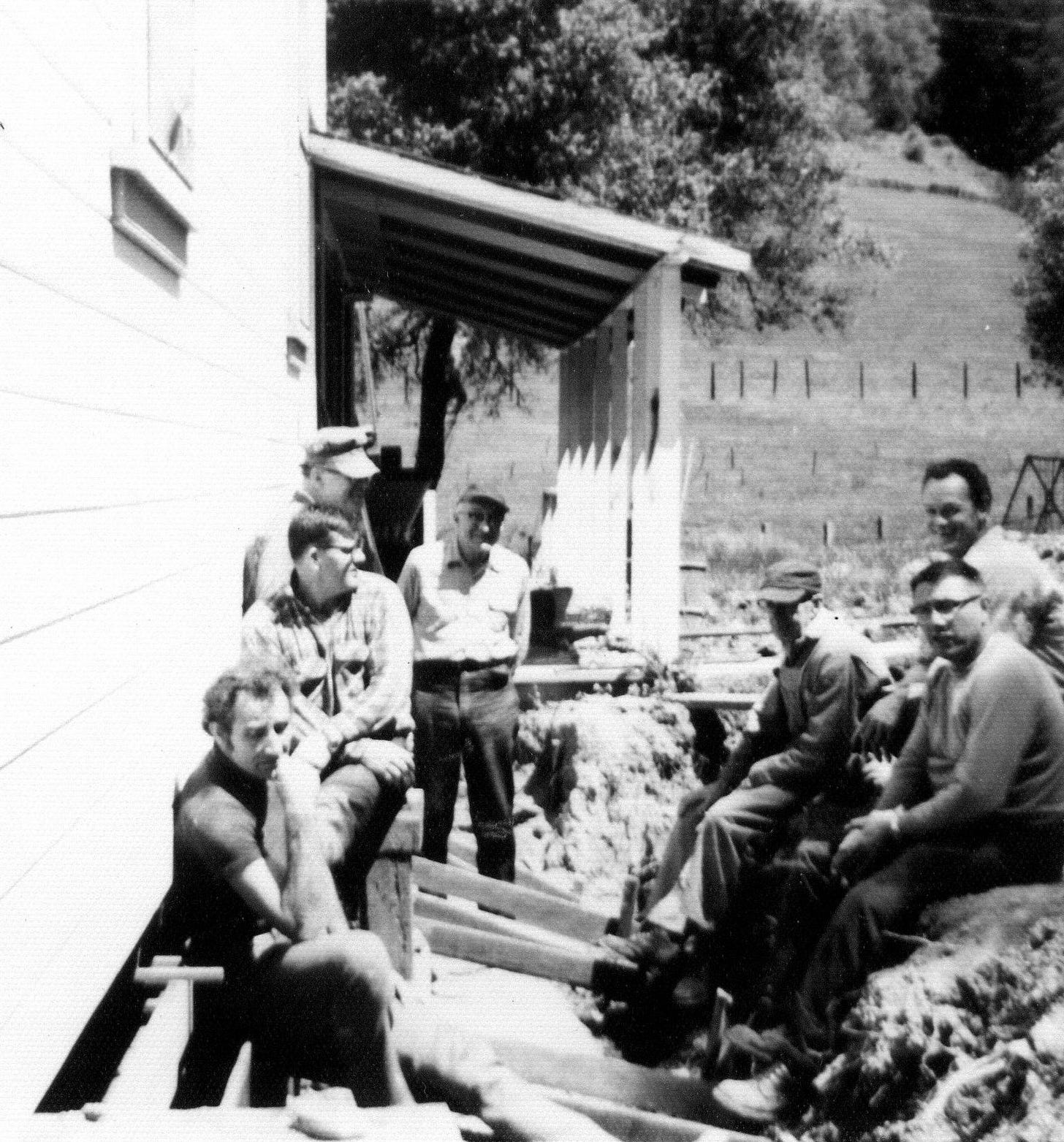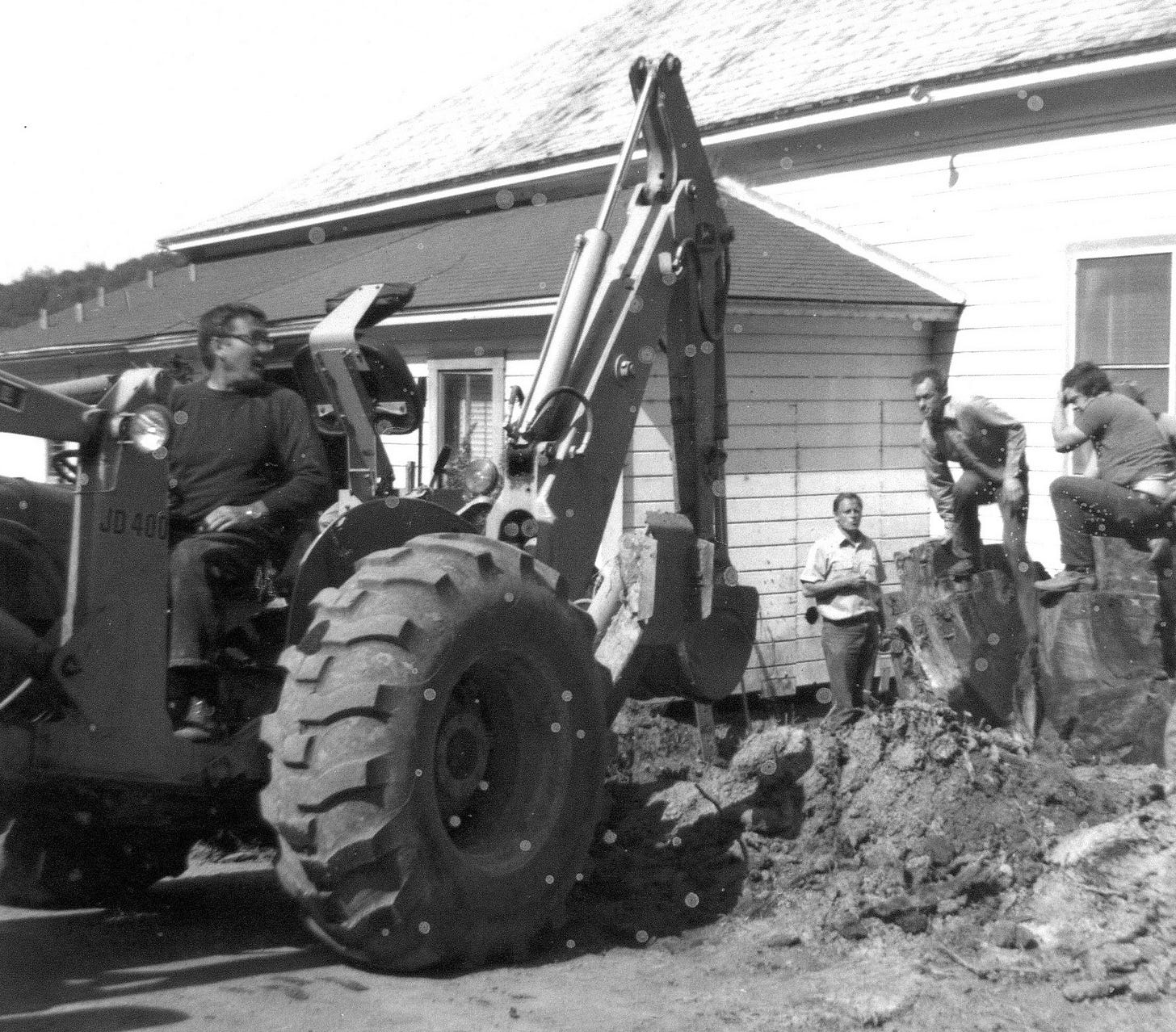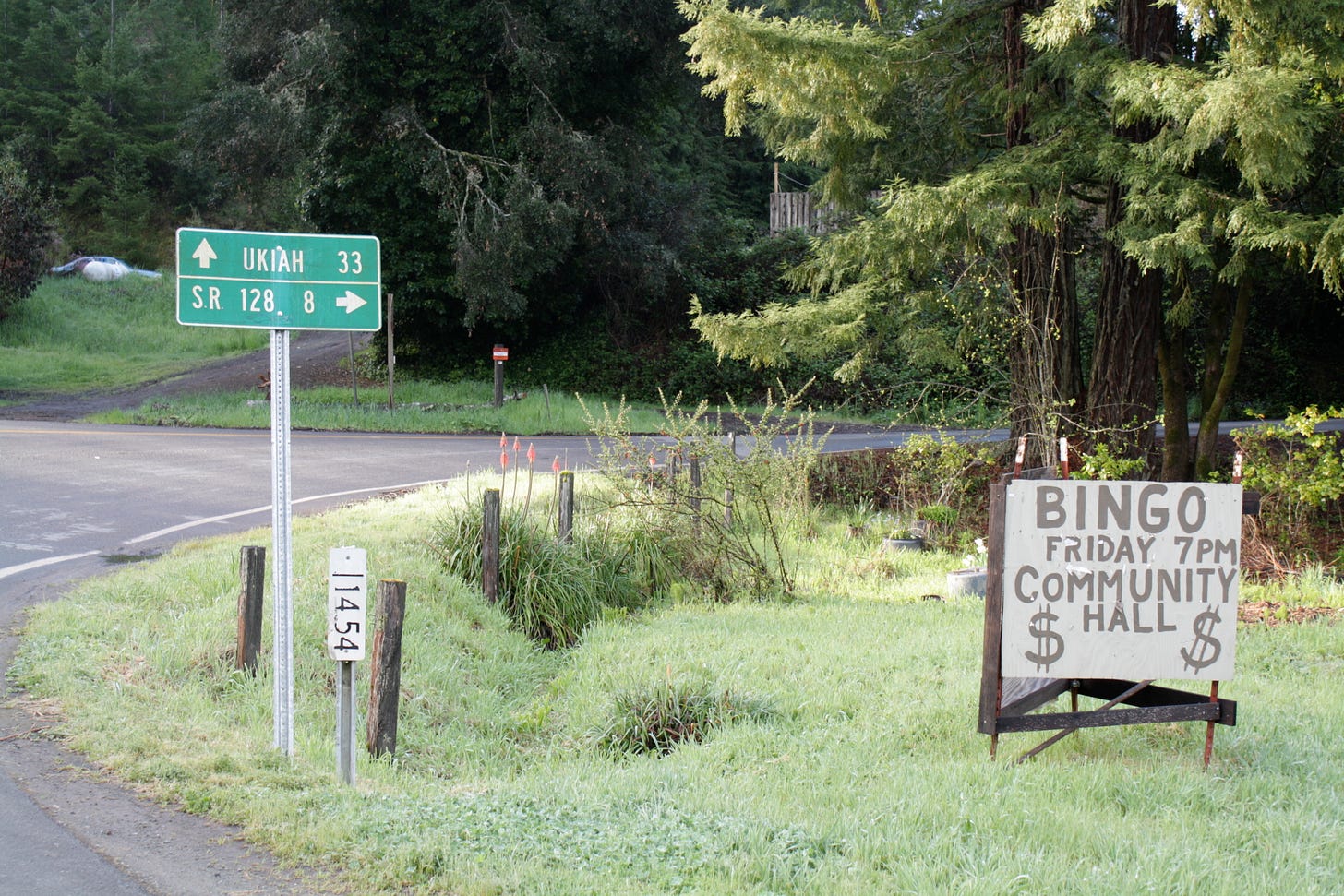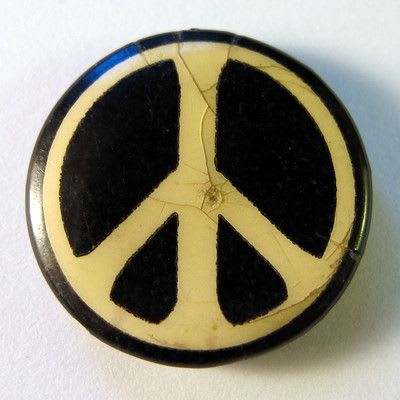Tension between Comptche old-timers and newcomers played out through social exclusion during the first half of the 1970s. The Grange was cited by every participant in this ethnography as a place to gather. It was also noted by every participant as a source of conflict.
Hippie newcomers were excluded from Grange membership. But they could attend functions sponsored by Grange members for the whole community. These occasions were often entertainment or food based benefits for the fire department . Everyone always showed up.
As a gathering place, the Comptche Grange represented common ground in terms of community structure. The building and the organization combined are emblematic of the conflict.
Grange Hall #671 was considered inclusive by the old-timers since its founding in 1938. Nearly anyone wanting to join the agricultural union was granted membership through a voting process that required unanimous acceptance.
Newcomers were offensive in superficial ways, such as smell and other behaviors identified in earlier posts. They also brought change. This caused fear. Consequently old-timers became exclusive when previously they were welcoming. Fear of newcomers is a common reaction among long-term residents; other studies show this fear is so common it’s considered universal.
"You hippies changed things. It scared us.”
The Comptche Community Hall was established in 1912. They built the hall and celebrated with a grand opening dance in May of 1913. In August of 1938, the community founded Grange #671, deeded the building to the organization.

The Comptche Grange operated until January of 2001 when the last few members voted the organization inactive due to lack of membership. Grange records were given to the Mendocino County Museum in Willits in 2001. However these archives were not accessible at the time of this study, the museum was closed for lack of funds.
When the Comptche Grange folded, the title was returned to the community and the historic building has resumed the original name, The Comptche Community Hall. The organization’s self-published book (2003) notes:
“This building has been a community hall for all purposes since it began. Churches, polling places, public talks, pictures (movies), small clubs, parties, showers, weddings, dinners, dances, and now the Volunteer Fire Department and its auxiliary and other clubs use it for events.”
As a gathering place, the Grange was a stage for much of Comptche’s conflict in the 70s. Newcomers wanted to join the Grange, but the old-timers black-balled them. Town drama followed each incident of rejection, stirring up gossip and conflict.
Blackballing was a way to vote anonymously against an applicant. An old-timer participant who was a member of the Grange wrote:
“If someone didn’t salute the flag, they could not be a member. Hippies were non-political, they avoided flag waving.”
An old-timer respondent explained:
“The Grange was secretive; they used passwords. The Grange evolved around farming and ranching. Pre-hippie, they rejected the folks who ran the bar, Cozy's Corner, because of the alcohol. After the hippies, they rejected the hippies.”
Comptche back-to-the-landers considered Grange membership as part of their vision of community-building. As small farmers they wanted to join an agricultural association. The National Grange Organization gave farmers and ranchers political clout as well as buying power. Restricting access to membership equated blocking access to knowledge, resources, purchasing discounts, and power.
An old-timer participant described Comptche’s quandary:
“They had exclusive events and the hippies tried to get in. But to be accepted the members had to vote, and a bunch of people black-balled the hippies. For many years there were no hippies at all. So they joined the Whitesborough Grange at Albion. Once you're a member you can go anywhere. So the hippies started showing up anyway.”
Despite the rift, everyone in the community gathered for events held in the Grange Hall, the community’s only public gathering place. This was the original intent of the isolated homesteaders in a town with out a community hall.
The most anticipated and well-attended community event to this day is the annual Fathers Day Chicken BBQ, a benefit dinner for the fire department. The event depends upon a community of volunteers. It consistently raises a significant portion of the volunteer fire department’s annual operating budget.
A June 1973 article about Comptche’s annual fundraiser in the Mendocino Beacon:
The chicken dinner involves everyone in the small community—from the people who peel hundreds of potatoes and bake bread and pies for days in advance, to the people who donate water and a water tanker so the Grange Hall will have good water all day. This year, become a part of these happy festivities and come visit on Father’s Day.
By the mid-1970s, this annual community event got the old-timers working with the newcomers out of necessity. Relationships began to grow. The fire department and the Grange are community entities that are “always asking for help,” explained a participant.
“They were saying, ‘we’re gonna have to let the new people in.’ The fire department welcomes everyone to this day. But the Grange, they blackballed hippies.”
All respondents noted they enjoyed volunteering for the fire department’s benefit dinner.
"One year I baked eighty-two loaves of bread for the chicken dinner. Everyone baked a pie,”
“I’ve been in the kitchen there 35 years on Fathers Day.”
The Fathers Day Chicken BBQ continues as a successful fundraising event for the Comptche Volunteer Fire Department. In 1976, the venue changed from Grange Hall to the newly constructed firehouse. The firehouse soon had a full commercial kitchen to support department events and feed fire crews during emergencies.
Following that, the Grange Hall got a makeover. The membership repaired the foundation, laid a new floor, and updated their kitchen.


The Grange did not survive as members aged. After sixty-three years, the organization folded. A membership base that was closed and exclusive declined as members died or lost interest. There was no new blood. A stream of new people is important to in keeping an organization alive and evolving.
As noted in earlier posts, after the Philbrick lumber mill burned in 1964, people left Comptche for jobs elsewhere. Participants who are old-timers wrote they thought Comptche was dying.
The rise and fall of a grange organization demonstrates how continuous waves of immigration keep communities from becoming stagnant, aging, and dying. Once they arrive, immigrants need ways to integrate into a community. It benefits the entire community when old-timers accept newcomers. Newcomers look for ways to be part of the common ground.
Up next: Fire Department Fundraisers
Resources for this post:
Comptche Community Organization (CCO), 2003. Hall History, Comptche.
Comptche Volunteer Fire Department,1998. Comptche Past and Present.
Spicer, Lisa Gruwell, 2012, 2014. Finding Common Ground: When the Hippie Counterculture Immigrated to a Rural Redwood Community.
Stephan, Walter G., 2011. Improving Relations Between Residents and Immigrants.
Woods, Michael, 2005. Rural Geography: Processes, Responses, and Experiences in Rural Restructuring.






